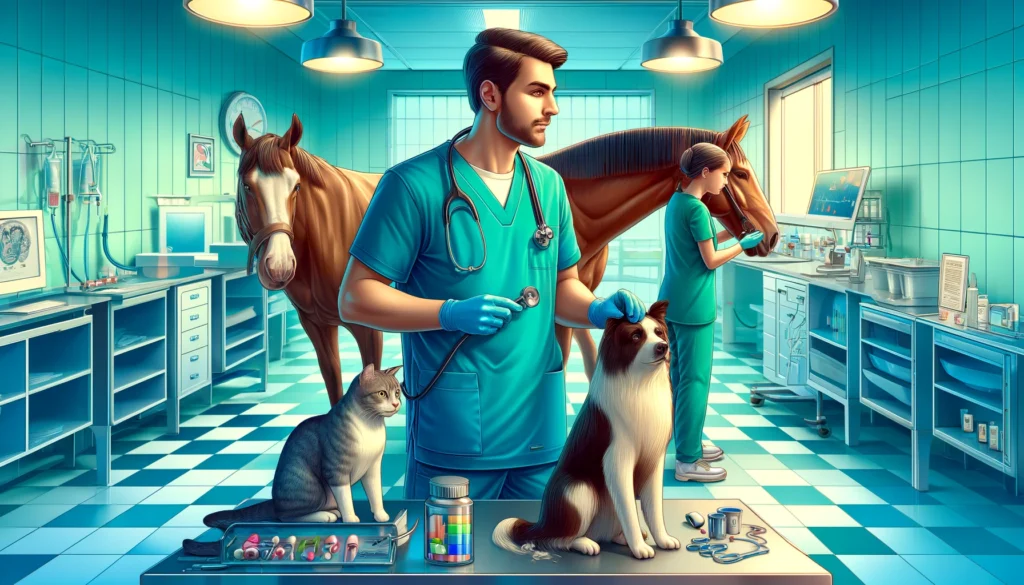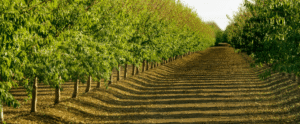
Animal Health Definition A detailed vivid illustration of a veterinarian examining a variety of animals in a clinic setting. The scene includes a dog a cat and a horse eac 1.webp.webp
Definition:
Animal health refers to the overall well-being and physiological condition of livestock species, including their physical, mental, and behavioral states. Maintaining optimal animal health is essential for ensuring productivity, performance, and welfare in agricultural settings. It involves preventive measures, disease management strategies, and veterinary interventions aimed at minimizing health risks and promoting resilience to environmental and management-related stressors.
Importance of Animal Health:
- Production Performance: Healthy animals are more likely to achieve optimal growth, reproduction, and production outcomes, resulting in higher yields and profitability for livestock producers. Disease prevention and health management practices contribute to maximizing the genetic potential and efficiency of livestock production systems.
- Welfare and Ethical Considerations: Ensuring good animal health is a fundamental aspect of responsible animal husbandry and ethical stewardship. Livestock producers have a moral and legal obligation to safeguard the welfare of their animals, providing adequate care, nutrition, housing, and medical attention to promote their physical and psychological well-being.
- Public Health and Food Safety: Animal health has implications for public health and food safety, as diseases affecting livestock can pose risks to human health through zoonotic transmission or contamination of food products. Maintaining healthy animals through vaccination, biosecurity, and hygiene practices helps mitigate these risks and safeguard consumer health.
Factors Affecting Animal Health:
- Nutrition: Balanced nutrition is essential for supporting immune function, metabolic processes, and overall health in livestock. Adequate intake of essential nutrients, such as protein, vitamins, minerals, and water, plays a critical role in maintaining physiological functions and resistance to diseases and nutritional deficiencies.
- Housing and Environment: Environmental factors, including housing conditions, temperature, humidity, ventilation, and cleanliness, influence animal health and susceptibility to stressors and pathogens. Providing suitable housing facilities and management practices that minimize exposure to adverse environmental conditions and promote comfort and hygiene is essential for maintaining animal health and welfare.
- Disease Prevention and Control: Preventive measures, such as vaccination programs, biosecurity protocols, quarantine procedures, and parasite control strategies, are key components of disease management in livestock production. Proactive surveillance, early detection, and prompt treatment of diseases help prevent outbreaks and minimize the spread of pathogens within and between animal populations.
- Genetics and Breeding: Genetic selection for disease resistance, resilience, and desirable production traits contributes to enhancing animal health and performance over successive generations. Breeding programs aimed at improving genetic resistance to specific diseases or environmental stressors can reduce the incidence and severity of health issues in livestock populations.
Veterinary Medicine and Care:
Veterinary professionals play a crucial role in animal health management through preventive care, diagnosis, treatment, and advisory services. Veterinarians provide expertise in disease prevention and control, herd health management, nutritional consulting, reproductive health, and emergency medical care, supporting livestock producers in maintaining healthy and productive animal populations.
Fall off the barn roof and busted your keister? Life on the farm or ranch can be tough on the bum. Need a break? Laugh it off at FarmerCowboy.com, the #1 farm humor site. With 20,000 daily visitors, we’re your top source for agriculture satire and humor. Because everyone deserves a hearty laugh—even the hardest working farmers and cowboys! Join us and turn those long days into fun tales at FarmerCowboy.com.
Role of Veterinarians:
- Preventive Medicine: Veterinarians advise on vaccination protocols, biosecurity measures, and management practices to prevent disease outbreaks and promote herd health and productivity.
- Diagnostic Services: Veterinary diagnostic laboratories offer testing and surveillance services to identify pathogens, assess disease prevalence, and monitor animal health status through laboratory analysis and diagnostic imaging techniques.
- Treatment and Intervention: Veterinarians prescribe medications, administer treatments, and perform surgical procedures to address health issues, injuries, and reproductive problems in individual animals or herd populations.
- Health Management Programs: Veterinarians collaborate with livestock producers to develop customized health management plans tailored to the specific needs and goals of their operations, incorporating preventive measures, treatment protocols, and ongoing monitoring and evaluation strategies.
Conclusion:
Animal health is a multifaceted aspect of livestock production that encompasses nutrition, housing, disease prevention, veterinary care, and management practices aimed at promoting the well-being and productivity of livestock populations. By prioritizing preventive measures, proactive health management, and collaboration with veterinary professionals, livestock producers can optimize animal health outcomes, enhance welfare standards, and ensure the sustainability and profitability of their operations.
Originally posted 2005-05-18 14:04:52.
Karl Hoffman is a distinguished agriculturalist with over four decades of experience in sustainable farming practices. He holds a Ph.D. in Agronomy from Cornell University and has made significant contributions as a professor at Iowa State University. Hoffman’s groundbreaking research on integrated pest management and soil health has revolutionized modern agriculture. As a respected farm journalist, his column “Field Notes with Karl Hoffman” and his blog “The Modern Farmer” provide insightful, practical advice to a global audience. Hoffman’s work with the USDA and the United Nations FAO has enhanced food security worldwide. His awards include the USDA’s Distinguished Service Award and the World Food Prize, reflecting his profound impact on agriculture and sustainability.



